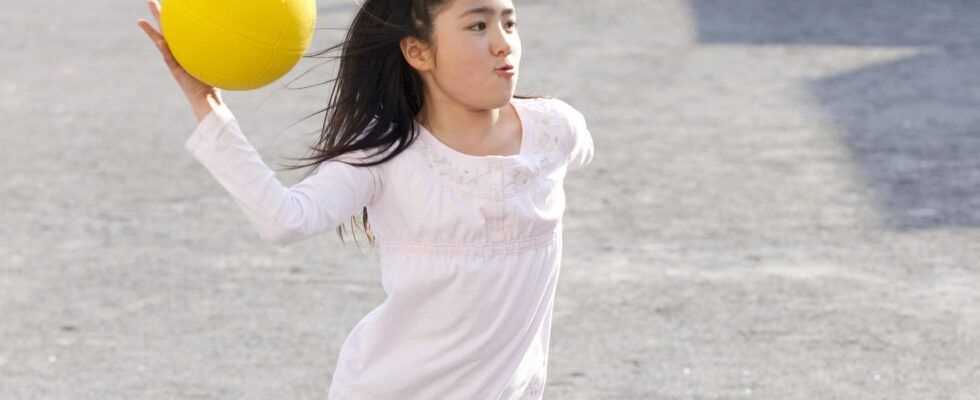Canadian researchers once sparked the debate that dodgeball was "legalized bullying". Our editor agrees – but a ban is not the solution to the problem. A comment.
School sports have always been sheer horror for me. As a girl with Turkish roots, it started in the changing room, because free interaction with my body was not necessarily part of my upbringing. I basically avoided swimming lessons – collective showers are still a nightmare for me to this day – and my body hair was so pronounced as a child that I was teased for it.
I will never forget how my classmate at the time, Dietrich, said to me when I complained about having to play dodgeball again: "You have so much hair on your legs, you don't even feel the ball." That same week, I was in the shower with a smelly tube of hair removal cream – but that's a whole different story. The game of dodgeball was much worse.
Dodgeball is "legalized bullying"
Canadian researchers claim in the Washington Post that dodgeball is a form of legalized bullying and that the game belongs on the index. It is even a means of repression, because dodgeball conveys the message "that it is okay to injure and dehumanize others," Joy Butler, a professor of education at the University of British Columbia, told the newspaper. Teachers should make sure that children and adolescents control their aggression and do not act out it further. In this context, the researchers asked children about their experiences in physical education and Dodgeball is said to have been mentioned often as an unpleasant experience.
Dodgeball is many children's nightmare
If I had been asked when I was at school, I would definitely have given the same answer. Sure, it starts with the team selection. If you weren't particularly athletic, or supposedly looked like that, then you sat on the bench last – and that made you the loser. But if you couldn't catch well, like me you were often the last on the field. Everyone is shouting at you to catch a catch while you keep bouncing out of the way of the ball. After all, you don't want to be responsible for your team losing. And for the opponents you are the incarnate target. One way or another a dilemma. Either way, the game just didn't go on because of me, or we lost.
Is a single game really responsible for bullying?
Even if I associate dodgeball with bad experiences, I wouldn't go so far as to blame the game for bullying. There are definitely sporty people who are bullied at school anyway. When it comes to avoiding bad feelings in children, perhaps one should rethink the overall concept of physical education. In general, I think it's good that children have to do sports in school, because otherwise many people might not be physically active at all. But: The children's inclinations and talents are simply not taken into account.
A ban won't solve the problem
For example, I danced and did rhythmic gymnastics and was very good at my sports. Instead, I had to jump over trestles at school where I got caught with my feet, perform a handstand with a rollover in front of the whole team (which was actually just a misshapen slap on the mat) or struggle to bottom out in the Cooper test. All of this ultimately led to a big "HA HA" from my classmates and although I wish that my children never have to play this game, a ban on dodgeball will not solve the problem of humiliation and bullying in the future either.
If, instead, one were to redesign physical education and respond to the inclinations of the students, this would above all require a lot of new teachers, and many schools are already reaching their limits when it comes to inclusion alone. Because there is simply a lack of money. But at least you could start and stop letting the children choose their teams themselves. Instead, teachers could count or draw.
Video tip: This victim of bullying moves many to tears
